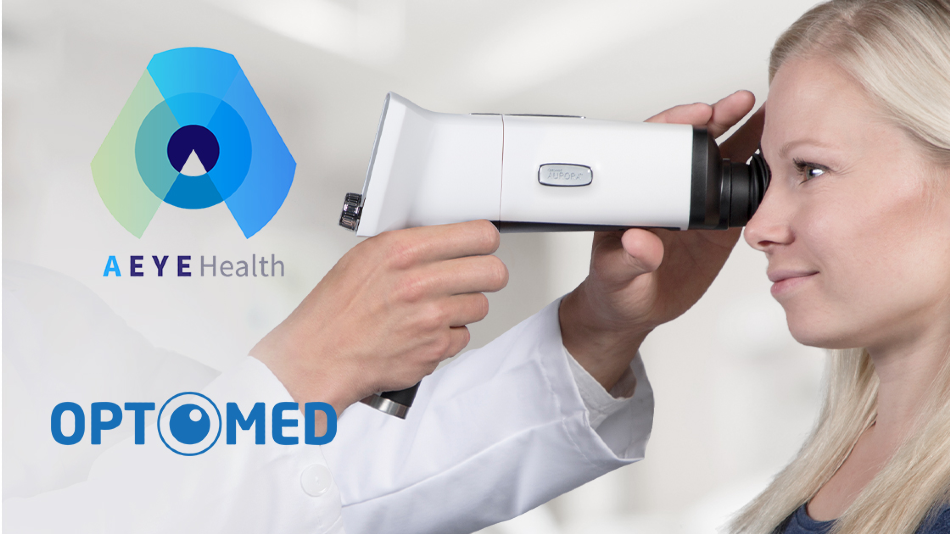Sep 21 2020
Optomed and AEYE Health have agreed to enter clinical and commercial collaboration to introduce an AI fundus camera Aurora AEYE. The collaboration includes a clinical trial with the aim to receive U.S. Food and Drug Administration (FDA) approval for autonomous AI for retinal screening.

Once the clinical trials are commenced and successfully completed, the Aurora AEYE will include Optomed’s handheld fundus camera Aurora and AEYE Health’s AI-based retinal screening system, that aims to provide analysis of the retina for diabetic retinopathy changes and receive diagnostic results within 60 seconds.
The Aurora AEYE simplifies the retinal screening process by providing an easy-to-use retinal screening system to examine these patients outside the ophthalmologist’s office, in places like primary care and endocrinology clinics or pharmacies.
Laura Piila, Optomed’s Vice President Devices comments: “We are very excited to begin our cooperation with the AEYE Health team as it enables us to provide another innovative and affordable solution for diabetic retinopathy screening. The solution is perfect for our growth strategy and supports our growth especially in the U.S. as the Aurora AEYE is expected to be the first handheld AI fundus camera available in the U.S. market.”
Optomed disclosed that it has been negotiating of the cooperation already in its H1 financial report on no-name basis due to legal reasons.
Zack Dvey-Aharon, Ph.D., Co-founder and CEO of AEYE Health comments: “Today, we are taking a big step forward in the direction of providing accurate, affordable and useable solution to detect retinal conditions, prevent blindness and save lives. The use of our advanced AI algorithms and Optomed’s quality handheld fundus cameras sets to democratize diagnostic eye screenings and ensure that all patients who need treatment will receive it on time. We are delighted to team up with Optomed and we look forward to spearheading global efforts to develop AI-based solutions for the early detection of a wide variety of retinal diseases.”